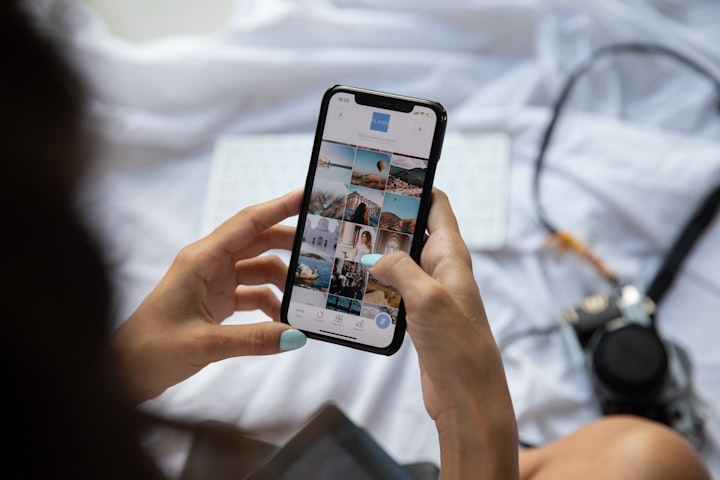Screen Time Out: The Benefits of Quitting Your Cell Phone
Find better sleep, reduce anxiety, and improve relationships
Cell phones have become an integral part of our daily lives, and they offer numerous benefits, such as instant communication, access to information, and entertainment. However, excessive cell phone use can also have negative effects, including increased anxiety, depression, disrupted sleep patterns, carpal tunnel syndrome (CTS), and even a decreased attention span.
In this article, we will explore the adverse effects of excessive cell phone use, the correlation between cell phone usage and anxiety, how to manage stress, and provide strategies for reducing cell phone usage.
Negative Effects of Excessive Cell Phone Use
Excessive cell phone use can have a negative impact on mental and physical health. One of the most commonly reported negative effects is an increased risk of depression and anxiety. Studies have shown a correlation between cell phone usage and depression and anxiety. In fact, individuals who use their phones for more than 5 hours a day have a 71% higher risk of developing depression compared to those who use their phones for less than 1 hour a day.
In addition to depression and anxiety, excessive cell phone use can also lead to disrupted sleep patterns, carpal tunnel syndrome, and even a decreased attention span. For starters, the light from cell phones can affect our circadian rhythm and make it difficult to fall asleep. This is why it is recommended to avoid using your phone before bedtime.
Another negative effect of excessive cell phone use is carpal tunnel syndrome (CTS). CTS is a condition that affects the wrist and can cause tingling, numbness, and pain. Excessive cell phone use can lead to CTS because of the repetitive motion of typing, scrolling, and gaming on our phones.

Managing Stress and Anxiety
Stress and anxiety can have a significant impact on our overall health and well-being. When we are stressed, our bodies release cortisol, which can increase blood pressure, heart rate, and blood sugar levels. Unmanaged stress can even lead to depression and other mental health problems, making it imperative to find ways to manage it.
One way to manage stress and anxiety is by reducing cell phone usage. In fact, studies have shown that individuals who used their phones for less than an hour per day reported significantly less stress and anxiety compared to those who used their phones more than 5 hours per day.
In addition to reducing cell phone usage, there are several other strategies that can help manage stress and anxiety. For instance, regular exercise, mindfulness meditation, and getting enough sleep can all help manage stress and anxiety. It's also important to prioritize self-care and set boundaries with work and personal commitments to prevent burn out.
It's also important to recognize that not all anxiety is bad; some anxiety can help us to stay alert and focused. However, excessive anxiety can be debilitating and difficult to manage. If you find yourself experiencing symptoms of anxiety that are interfering with your daily life, it's important to speak to a healthcare professional who can help you to develop coping skills and potentially identify specific triggers or underlying problems that may need to be addressed.

Managing Cell Phone Usage
Cell phones have become an integral part of our daily lives, but many of us find ourselves glued to our phones for hours each day. But it's important to remember that excessive cell phone use can take a toll on our mental and physical health.
While it's not always feasible to abandon our devices completely, there are several strategies that can help us to manage cell phone use. One approach is to set specific times each day to check and respond to messages, emails, and other notifications.
Another strategy is to turn off notifications and sounds during certain times of the day, such as during work hours or while spending time with family and friends. It's also important to be mindful of your phone usage and ask yourself whether it's necessary to pick up your phone at every notification.
Additionally, you can also try limiting the use of certain apps that might be contributing to your excessive cell phone usage. For instance, if you find that you're spending a lot of time scrolling through social media, consider setting a daily limit for yourself or even considering deleting the app entirely.
Remember that the key to managing cell phone usage is to find a balance that works for you. While some people may be able to entirely eliminate cell phone use, for many of us, it's a necessary part of our daily lives. The key is to be mindful of your usage and find ways to reduce it when necessary.

TLDR: A Simple Summary Of These Helpful Tips! ⚡
Excessive cell phone usage is like too much candy: it might taste sweet in the moment, but it will eventually lead to a stomachache. The key is to find balance. Set aside specific times for checking messages and emails, and turn off notifications when possible. Remember, cell phones are a tool, not a way of life. So the next time you're tempted to scroll through your feed, try taking a break and spending time with friends and family instead. After all, no Instagram feed is worth missing out on real-life connections. So here's to keeping our phones in our pockets and our mental health in check. Cheers!
About the Creator
Verity Gale
Welcome to my world, where art, music, science, the latest news, and, most importantly, stories converge 🌎. Join me on this literary journey as I connect the threads of storytelling with the wonders of our evolving reality.
Reader insights
Outstanding
Excellent work. Looking forward to reading more!
Top insights
Compelling and original writing
Creative use of language & vocab
Easy to read and follow
Well-structured & engaging content
Eye opening
Niche topic & fresh perspectives
Masterful proofreading
Zero grammar & spelling mistakes
On-point and relevant
Writing reflected the title & theme







Comments (1)
Amazing article and is so true for people to learn today. Exquisite job!